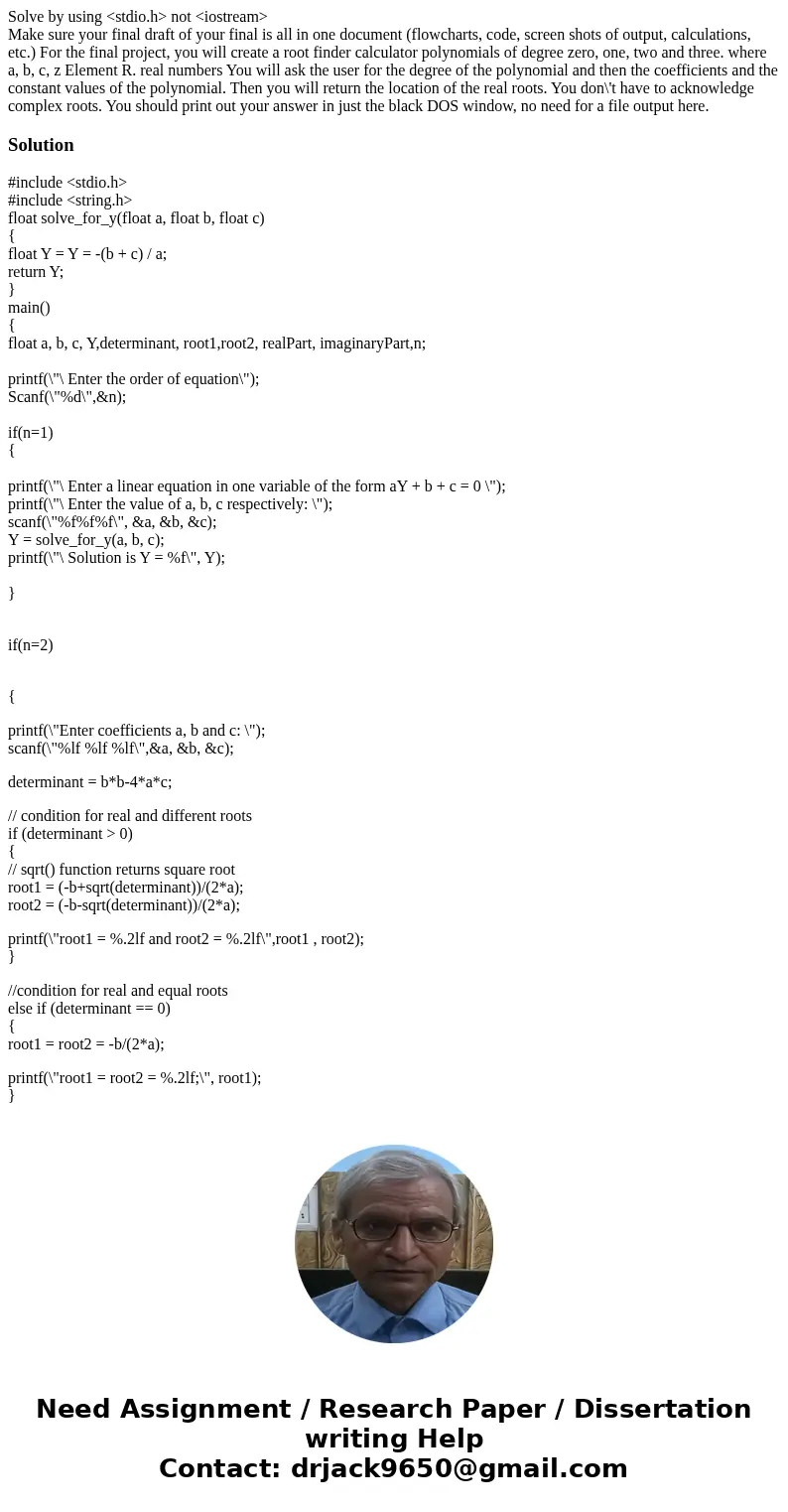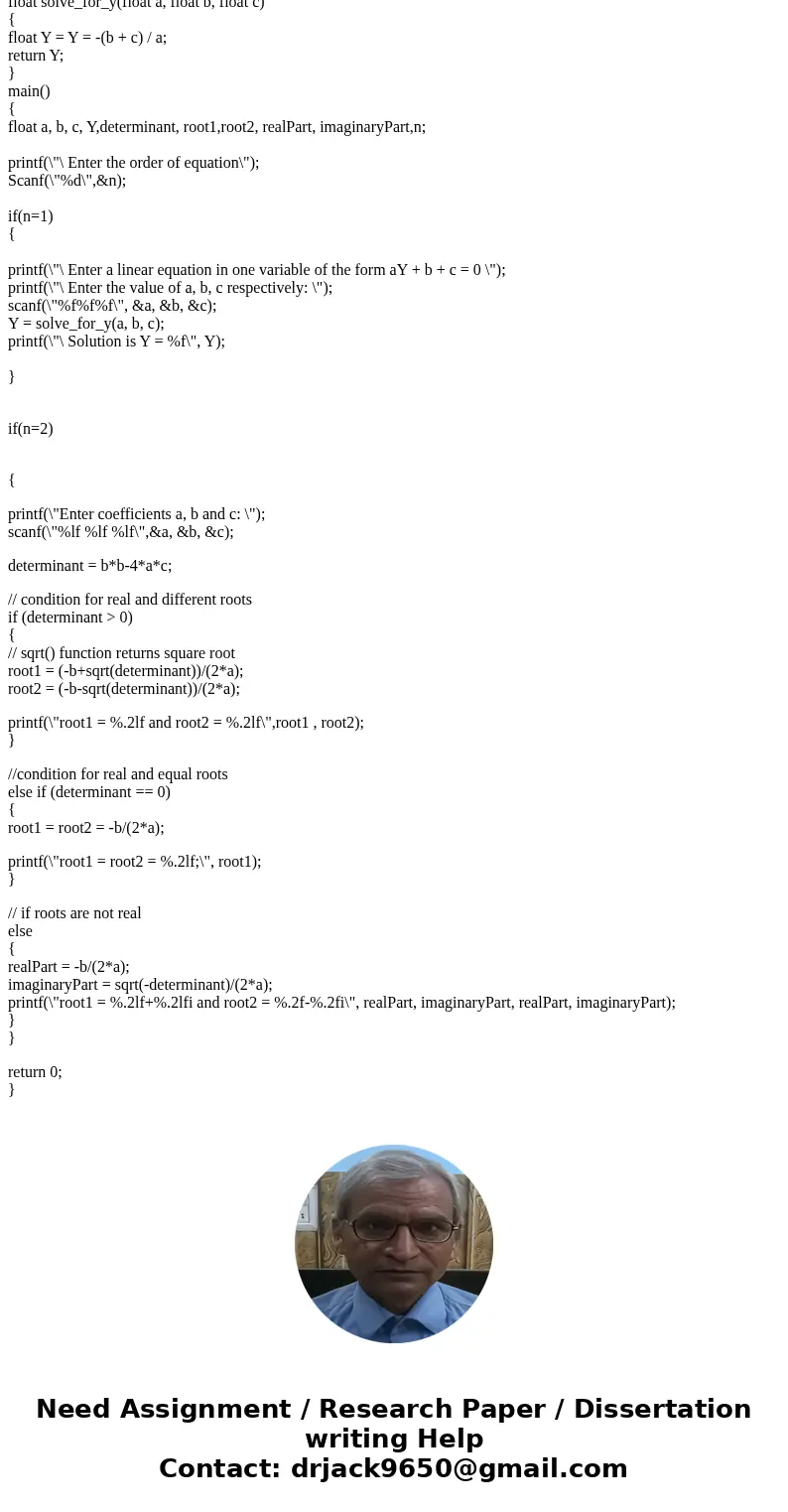Solve by using not Make sure your final draft of your final
Solution
#include <stdio.h>
#include <string.h>
float solve_for_y(float a, float b, float c)
{
float Y = Y = -(b + c) / a;
return Y;
}
main()
{
float a, b, c, Y,determinant, root1,root2, realPart, imaginaryPart,n;
printf(\"\ Enter the order of equation\");
Scanf(\"%d\",&n);
if(n=1)
{
printf(\"\ Enter a linear equation in one variable of the form aY + b + c = 0 \");
printf(\"\ Enter the value of a, b, c respectively: \");
scanf(\"%f%f%f\", &a, &b, &c);
Y = solve_for_y(a, b, c);
printf(\"\ Solution is Y = %f\", Y);
}
if(n=2)
{
printf(\"Enter coefficients a, b and c: \");
scanf(\"%lf %lf %lf\",&a, &b, &c);
determinant = b*b-4*a*c;
// condition for real and different roots
if (determinant > 0)
{
// sqrt() function returns square root
root1 = (-b+sqrt(determinant))/(2*a);
root2 = (-b-sqrt(determinant))/(2*a);
printf(\"root1 = %.2lf and root2 = %.2lf\",root1 , root2);
}
//condition for real and equal roots
else if (determinant == 0)
{
root1 = root2 = -b/(2*a);
printf(\"root1 = root2 = %.2lf;\", root1);
}
// if roots are not real
else
{
realPart = -b/(2*a);
imaginaryPart = sqrt(-determinant)/(2*a);
printf(\"root1 = %.2lf+%.2lfi and root2 = %.2f-%.2fi\", realPart, imaginaryPart, realPart, imaginaryPart);
}
}
return 0;
}


 Homework Sourse
Homework Sourse